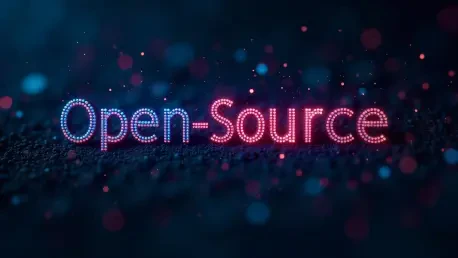I’m thrilled to sit down with Vijay Raina, a renowned expert in enterprise SaaS technology and tools, and a thought leader in software design and architecture. With his deep insights into the tech ecosystem, Vijay is the perfect person to help us unpack the recent turmoil surrounding RubyGems and Ruby Central. In this interview, we’ll dive into the controversial decision to remove maintainers from the RubyGems GitHub repository, explore the balance between security and community trust, and discuss the broader implications for open source governance and collaboration.
How did the recent actions by Ruby Central, particularly the removal of maintainers from the RubyGems GitHub repository, impact the Ruby community’s trust and dynamics?
The decision by Ruby Central to remove maintainers from the RubyGems repository on September 18 was a significant shock to the community. It wasn’t just about access; it struck at the heart of trust and collaboration that open source thrives on. Many maintainers, who had dedicated years to the project, felt sidelined and betrayed, as seen in public statements from folks like Ellen Dash. This move created a rift, with some developers labeling it a hostile takeover rather than a protective measure. The lack of prior communication exacerbated the situation, leaving the community questioning Ruby Central’s commitment to transparency and shared governance.
What do you think were the driving factors behind Ruby Central’s decision to restrict access to only full-time employees or contractors?
From what’s been shared publicly, Ruby Central’s primary concern appears to be security and fiduciary responsibility. They’ve emphasized the need to safeguard the software supply chain, especially given recent attacks on RubyGems and other ecosystems. By limiting administrative access to employed or contracted engineers, they likely aimed to reduce legal and operational risks tied to a service as critical as RubyGems.org. Additionally, their mention of governance gaps post-merger with Ruby Together suggests there were structural issues that needed urgent addressing, pushing them toward tighter control.
How do you interpret the community’s reaction to this change, especially the accusations of a hostile takeover or external influence?
The community’s reaction reflects a deep sense of ownership over RubyGems, which is understandable given its role as a cornerstone of the Ruby ecosystem. Accusations of a hostile takeover stem from the abruptness of the action and the lack of initial explanation. When maintainers were removed without warning, it fueled speculation—like rumors of a hostile donor influencing decisions—that Ruby Central hasn’t fully addressed. This highlights a broader tension in open source: the balance between organizational control and community autonomy. Developers feel their contributions are undervalued when decisions are made unilaterally.
In your view, what are the key security challenges Ruby Central is trying to address with these access restrictions, and are they justified?
Ruby Central is grappling with real security challenges, particularly around supply chain attacks that have hit various ecosystems hard. RubyGems.org isn’t just a repository; it’s a production service handling billions of downloads and sensitive data. Unchecked access could pose risks like malicious code injections or unauthorized changes. Their move to restrict permissions, while drastic, aligns with industry trends toward tighter controls in critical infrastructure. However, justification hinges on execution—without clear communication and a path to reinstate maintainers under agreed terms, it risks alienating the very community they aim to protect.
How can open source projects like RubyGems balance the need for robust security with maintaining an inclusive, collaborative community?
Balancing security and collaboration starts with transparency and shared governance. Projects like RubyGems need formal agreements—like the operator and contributor agreements Ruby Central is developing—that define roles and responsibilities without shutting out volunteers. Regular security audits and training can mitigate risks while keeping access open to trusted contributors. Moreover, involving the community in decision-making, perhaps through a steering committee, ensures diverse perspectives are heard. It’s about creating systems where security enhances trust rather than undermines it.
What lessons can other open source organizations learn from this controversy regarding communication and governance?
The biggest lesson here is the critical importance of communication. Ruby Central’s initial silence and the abrupt nature of their actions turned a potentially manageable change into a full-blown controversy. Open source organizations must prioritize proactive, clear messaging before implementing major decisions, especially those affecting contributors. On governance, this situation underscores the need for well-documented policies and structures that anticipate risks and transitions. Without these, organizations risk repeating the same missteps, losing community goodwill in the process.
Looking ahead, what is your forecast for the future of RubyGems and its relationship with the Ruby community under Ruby Central’s stewardship?
I think the future of RubyGems hinges on how Ruby Central rebuilds trust. If they can finalize operator agreements and restore permissions in a way that respects maintainers’ contributions, there’s potential for a stronger, more sustainable ecosystem. However, if the community continues to feel excluded, we might see fragmentation—perhaps forks or alternative tools gaining traction. My forecast is cautiously optimistic: Ruby Central has acknowledged their missteps and seems committed to better governance. The key will be turning promises into actions that genuinely prioritize community collaboration alongside security.









